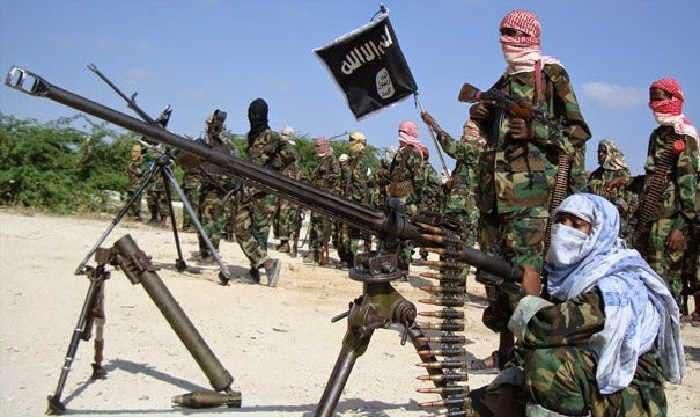5 problems Nigeria will have to deal with if ECOWAS unleashes its military on Niger
![ECOWAS has given a matching order to its military standby force to restore constitutional order in Niger Republic. [Africa Report]](https://image.api.sportal365.com/process/smp-images-production/pulse.ng/26072024/51571a52-797f-4cf6-922d-f5ce2621bb0f?operations=autocrop(700:467))
Authorities of the Economic Communities of West Africa (ECOWAS) have made a bold decision to militarily intervene in the Niger coup crisis to reinstate the ousted President Mohamed Bazoum and restore the country's democracy.
The West African leaders resolved to go this route at their emergency meeting in Abuja on Thursday, August 10, 2023, following a series of unsuccessful diplomatic talks with the coup leaders.
Out of the 16 countries in West Africa, Niger has Mali and Burkina Faso as allies. Both countries have declared that any attempt by the ECOWAS to militarily intervene in the political crisis in Niger would be considered a declaration of war against them.
Interestingly, the junta headed by General Abdourahamane Tiani is ostensibly unperturbed by the ECOWAS threats and sanctions as the coup leaders on Thursday announced the formation of a new government.
If the ECOWAS eventually sends its troops to Niger, Nigeria will certainly have some problems to deal with.
Here are the five problems Nigeria will face if the Niger military leaders choose war over peace.
Refugee crises
Humanitarian crises are the first problems Nigeria will have to deal with if the impasse degenerates into a full-blown war.
![Nigeria will have a serious refugee crisis to manage if ECOWAS goes to war against Niger, [TheConversation]](https://image.api.sportal365.com/process/smp-images-production/pulse.ng/26072024/9c253a66-eed5-4b40-900c-a458211d83df)
Given its proximity to Niger, Nigeria will through its porous border receive large groups of refugees and displaced persons flooding into the country for safety.
Seven Nigerian states - Sokoto, Kebbi, Katsina, Zamfara, Jigawa, Yobe and Borno - will have these problems to contend with because of the several border communities they share with the Republic of Niger.
Casualties
History says there have been wars without casualties. But a war involving several countries with each of them deploying its tanks, boots and riffles will no doubt record civilian deaths.
![War will always claim lives and properties. [Open Access Govt]](https://image.api.sportal365.com/process/smp-images-production/pulse.ng/26072024/c8fae3aa-3f15-4eb5-9d05-59c8e6203aaf)
It is on record that Nigeria lost at least 500 soldiers when it led the ECOMOG troops - the military arm of the ECOWAS - to Liberia in 1990.
Nigerian civilians resident in Liberia were equally affected by the war and according to former President Olusegun Obasanjo, "We will never know the number of our civilians who lost their lives in the process of the Liberian conflict."
Already, Italy and France have evacuated their citizens from Niger. It remains to be seen what the Nigerian Government would do for its citizens resident in Niger to avoid collateral damage should the war happens.
Arms proliferation
When a war ends, it leaves a trail of arms proliferation that conduces another crisis in a war-torn country and its next-door neighbours.
![Arms and weapons proliferation is one of the post-war challenges countries have to manage. [BusinessDay]](https://image.api.sportal365.com/process/smp-images-production/pulse.ng/26072024/6bdb1519-c840-474b-a92c-cbcaa7ade207)
Years after the Libya war, Nigeria still struggles to contain the insurgency and banditry that developed as a result of the proliferation of arms smuggled into the country through the Niger and Chad borders.
Unfortunately, five of the seven Northwest states, where banditry is rife in Nigeria share borders with Niger.
What this means for Nigeria is that, if the war happens, banditry in the Northwest would disastrously intensify.
Increase in terrorists' activities
Illegal possession of arms and weapons will automatically increase the rate of violent crimes in Nigeria.

Nigeria currently ranks 8th in the list of countries with the worst terrorism impact, no thanks to the rise in bandits and terrorist activities in the past few years.
With the looming war in Niger, the rate of violent crimes in Nigeria would increase exponentially if the government fails to secure the porous borders through which arms and weapons are smuggled into the country.
Economic impact
Local businesses in Nigerian states that share borders with Niger are already feeling the heat of the ECOWAS border closure sanction against the country.
![The north is already feeling the impact of the ECOWAS sanction on Niger. [AP]](https://image.api.sportal365.com/process/smp-images-production/pulse.ng/26072024/107d4a05-46f9-47ae-b412-4df1eb42faf6)
Prices of food and other goods are on the rise as Nigerian business owners are reportedly taking advantage of the sanctions imposed on Niger.
In the last few days, a sack of 100 kilograms (220 pounds) of corn is said to have increased by 24%.
The situation would worsen and Nigerians in border communities would feel the heat more if diplomacy completely fails between the ECOWAS and the junta.
)
![Aisha blows hot on Security forces; Y7ou won't believe what she said [VIDEO]](https://image.api.sportal365.com/process/smp-images-production/pulse.ng/17082024/1f976edf-1ee2-4644-8ba1-7b52359e1a8f?operations=autocrop(640:427))
)
)
)
![Lagos state Governor, Babajide Sanwo-Olu visited the Infectious Disease Hospital in Yaba where the Coronavirus index patient is being managed. [Twitter/@jidesanwoolu]](https://image.api.sportal365.com/process/smp-images-production/pulse.ng/16082024/377b73a6-190e-4c77-b687-ca4cb1ee7489?operations=autocrop(236:157))
)
)
)
)
)
)
)
)
)
)
)